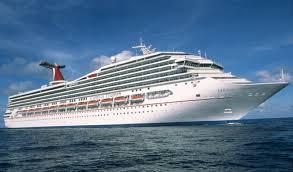Carnival Grants Approval from U.S for Cuba Travel
Jul 14,2015
The trips will begin in May 2016 through fathom, the new brand Carnival unveiled this past June, and will include a week-long Cuban itinerary.
Fast-forwarding to Cuba and the United States history, Cuba has been the nemesis of the U.S for over 45 years and up until December of this year; it is illegal for U.S. citizens to spend money in Cuba unless they are granted a special Treasury Department license to do so. Cuban-Americans were restricted to visiting Cuba only every three years according to the book, The Caribbean From a Global Perspective, written by Florida A&M University Professor Janet DeCosmo who has had the opportunity to visit the island to conduct research.
DeCosmo tells a story about her travels to Cuba along with a few students, and how they faced difficulties when some of the students decided to purchase Cuban cigars and bring them back into the states.
“We almost didn’t make it out of there,” DeCosmo says jokingly. “They are really strict, and we could have faced jail time, but luckily they just confiscated them.”
DeCosmo, who teaches Caribbean Culture and Religion Courses at FAMU University, assigned her students a homework assignment in which they had to write a one page response about which Caribbean island out of about five choices they would choose to live if they didn’t live in the U.S. Almost 80 percent of the students chose Cuba.
“I think I turned all of you into communist,” said DeCosmo laughing after she read a few papers from her students.
One of her students Melvin George said he chose Cuba based off of former statistics.
“It was just the best choice out of the five. You have free healthcare, education, and no one is without a job. I think I could sacrifice my first amendment rights for that,” said George
Arnold Donald, president and CEO of Carnival Corp said Carnival Corp. has long studied Cuba as a potential destination, but became encouraged about the possibility after President Obama announced plans to thaw a decades-long diplomatic freeze in December. The company applied for licenses a few months ago and got word that approval was granted, he said.
“These licenses today are historic,” said Donald, during a conference call with media. “This will be the first time in well over 50 years that a cruise ship can take passengers from the United States to Cuba and return in any kind of repeated basis.”
The U.S. Department of the Treasury said earlier this year that citizens who fall under 12 categories of authorized travel, which includes educational activities, humanitarian projects or people-to-people programs, did not have to apply for a specific license or get prior approval to go to Cuba.
Passengers from the United States will still have to certify that they are traveling under one of the allowed categories, and they will pay a premium for the experience. Prices for seven-day cruises to Cuba will start at $2,990 per person, which includes meals on the ship and some cultural immersion activities on land. The fare does not include taxes or fees, and traditional tour excursions or unstructured time off the ship will not be available.
Donald said the costs associated with sailing in Cuba are not yet clear, but he believes the fathom pricing fits into the current range of options.






